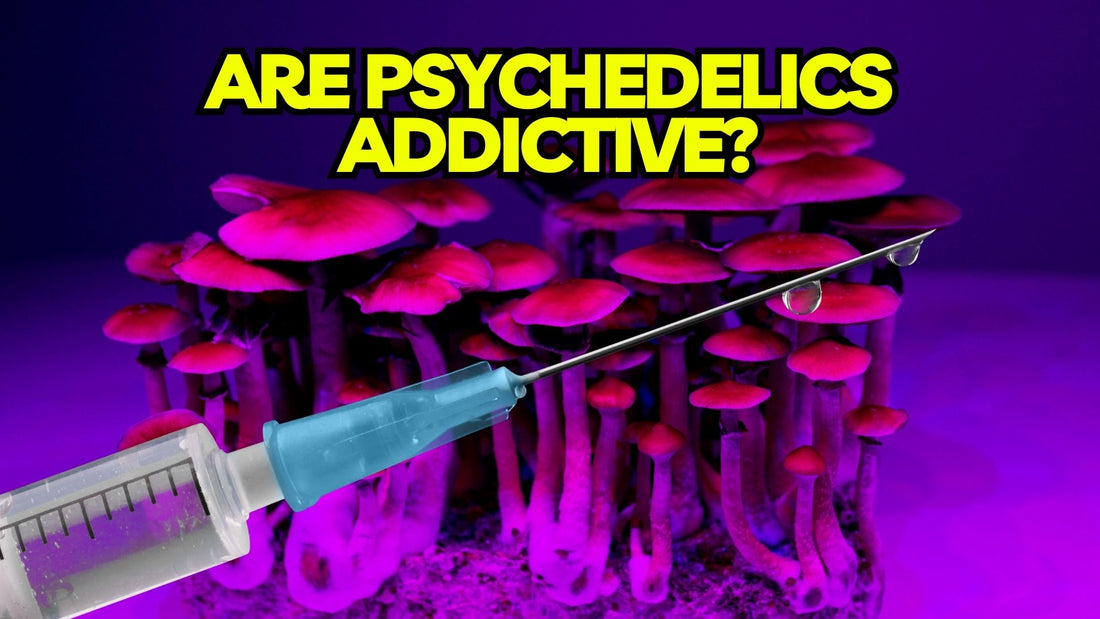
Are Psychedelics Addictive?
 Today, we're tackling a burning question that often pops up in discussions about psychedelics: Are these mind-altering substances addictive? You might have heard some skeptics claim that psychedelics hook you in like a catchy tune, but we're here to lay down the facts. Get ready for a reality check, because we're about to unveil the truth – psychedelics are not addictive. In fact, they might even hold the key to breaking free from other addictions. Let's dive in!
Today, we're tackling a burning question that often pops up in discussions about psychedelics: Are these mind-altering substances addictive? You might have heard some skeptics claim that psychedelics hook you in like a catchy tune, but we're here to lay down the facts. Get ready for a reality check, because we're about to unveil the truth – psychedelics are not addictive. In fact, they might even hold the key to breaking free from other addictions. Let's dive in!
The Nature of Addiction:
Before we dive into psychedelics, let's first understand the nature of addiction. Addiction typically involves the compulsive craving and use of substances that create a physical and psychological dependence. This vicious cycle often leads to negative consequences, affecting various aspects of life. But here's the catch: psychedelics work differently.
Non-Addictive by Nature:
Contrary to addictive substances, psychedelics do not create a physical dependence or induce compulsive craving. They simply don't wire the brain for addiction. You won't find yourself crawling on the floor, desperately searching for your next hit. Psychedelics work on a different level, and their effects are not driven by addictive mechanisms.
Breaking Free from Addiction:
Here's the mind-blowing twist: psychedelics may actually hold the potential to help people break free from addiction! Research suggests that certain psychedelics, when used in a therapeutic setting, can facilitate profound transformative experiences. These experiences can help individuals gain insights into the root causes of their addiction, confront their traumas, and foster a fresh perspective on life. In fact, studies have shown promising results in using psychedelics to treat addiction to substances like alcohol, tobacco, and opioids.
A Paradigm Shift in Perception:
Psychedelics have the power to shift our perception and provide us with a new lens through which we view ourselves, our behaviors, and our relationship with addiction. By inducing altered states of consciousness, these substances can help individuals examine the underlying factors contributing to their addictive patterns. They can open doors to introspection, self-reflection, and a renewed sense of purpose.
Empowering Personal Growth:
It's not just about breaking free from addiction; psychedelics can empower personal growth and self-discovery. These substances can help individuals gain a deeper understanding of themselves, their emotions, and their desires. They can promote introspection, empathy, and self-compassion – essential ingredients for healing and personal transformation. By addressing the root causes of addiction, psychedelics provide a unique opportunity for individuals to rebuild their lives on a solid foundation.
Responsible Use and Integration:
While psychedelics are not addictive, it's important to approach them with respect, caution, and responsible use. These substances can be powerful, and their effects vary from person to person. Integration is key – taking the insights gained from psychedelic experiences and incorporating them into daily life through practices like therapy, meditation, and self-reflection.
Setting the Record Straight with Science:
Now, let's dive into the science behind psychedelics and their non-addictive nature. Understanding the scientific evidence will solidify our understanding and debunk any lingering doubts.
Neurochemical Effects: Unlike addictive substances that hijack the brain's reward system, psychedelics work on different neurotransmitter systems. Substances like LSD and psilocybin (the active compound in magic mushrooms) primarily interact with serotonin receptors, leading to altered states of consciousness and expanded awareness. These interactions do not create the same patterns of dependency seen with addictive drugs.
Brain Plasticity: Research has shown that psychedelics promote neuroplasticity – the brain's ability to form new connections and reorganize itself. This neuroplasticity opens the door to transformative experiences and can facilitate changes in thought patterns, emotions, and behaviors. It allows individuals to break free from addictive cycles by rewiring neural pathways associated with addiction.
Therapeutic Potential: Studies conducted at prestigious institutions, such as Johns Hopkins University and Imperial College London, have demonstrated the therapeutic potential of psychedelics in addressing addiction. Research on substances like psilocybin has shown promising results in reducing cravings, increasing motivation for change, and fostering long-term abstinence from addictive substances.
Personal Stories of Liberation:
Beyond the scientific evidence, personal stories of individuals who have overcome addiction with the help of psychedelics provide compelling testimonials. Let's hear from a few voices:
Tom, a recovering alcoholic, shares his journey: "After struggling with alcohol addiction for years, I hit rock bottom. That's when I decided to try a psychedelic therapy session. The experience was profound – it showed me the underlying pain and trauma that fueled my addiction. It gave me the strength to face my demons and make positive changes in my life. Psychedelics opened a door to healing that I never thought possible."
Sarah, a former smoker, reflects: "I had tried quitting smoking countless times, but I always fell back into the habit. When I explored psilocybin therapy, it completely shifted my perspective on smoking. I realized the deep-rooted emotional reasons behind my addiction. The psychedelic experience helped me break free from the grip of nicotine and gave me the tools to live a healthier, smoke-free life."
Integration and Long-Term Support:
While psychedelics can be catalysts for transformation, the journey toward lasting recovery requires ongoing support and integration. Here are some essential elements to consider:
Therapeutic Context: Psychedelics should be used in a controlled and therapeutic setting, guided by experienced professionals who can provide emotional support and facilitate integration.
Integration Practices: Integration involves reflecting on and incorporating the insights gained from psychedelic experiences into daily life. Practices such as journaling, meditation, and therapy can help solidify the lessons learned and support ongoing growth and healing.
Community and Support: Connecting with a supportive community can be invaluable on the path to recovery. Whether it's joining a support group, seeking therapy, or engaging with like-minded individuals, having a network of support can provide encouragement, guidance, and accountability.






4 comments
This happened a few weeks ago and I have been reflecting on it and feel comfortable enought to share.
I had chocoaltes with enigma and pearly gates in them. I make all the products myself. I have taken the same dose many times before . But this time was different. about 30 min after intake I could feel the come up. So I go lay in my dark cold room and start to meditate. Music going, mask on, feeling great and singing along with my playlist. Closed eye fractals going. Totally normal. Then my music starts sounding garbled. like a walkman with low batteries from back in the day. I stare at my phone which is melting but found if i concentrate on it then music picks back up. go back to having fun. music really starts sounding fucked up garbled no sense. I can’t see my phone anymore. I am having total open eye fractals and my room is fucking bright like new light bulbs bright.
Before I give the next part…I am a Registered nurse for 15 years with 10 years in the ER and now hospice for the last 5
I am laying there. can’t figure out the music and then realize I am breathing shallow. I felt my neck for my pulse and its slow slow. I always run in the 90-100. I think " I overdosed" I have to fight. I need to push through and it will wear off. Then I couldn’t hear music anymore. I did hear a voice" Just let go" and I said no. I need to fight. I need to get it out of me. So I get up from my bed and walk in a striaght line to my bathroom shower. I felt like I was puking. I saw this black bile coming out of me. Thinking I was better I turned around and walked back to my bed. To find that I was still there. and I looked like one of my hospice patients when I go pronounce a death. Like my face was sunken and pale. I put my hand on my chest. I really felt the sensation on my hand of my flesh. It wasn’t rigor cold it was cool. But I didn’t feel my heart beat and I didn’t feel my chest rise.
So I just talked to myself. You did it big guy. You have been growing mushrooms and studing and microdosing and came so far. You never have done anything hobby wise for this long. You alwyas said you didn’t want to live to be old. 47 is a good age. Nobody will know and it will look like natural causes. Thank you for letting me live in your body but I am gonna go now. See what is in store for me. Then I turned around. Walked through my back wall to my back yard. I remember the coolness of the night. the frog noises. I held my hands out and closed my eyes. Then woke up the next morning. There was nothing in my shower. my lights was still off.
Anyways. I wanted to finally share. I went from daily drinking vodka to nothing. Just didn’t have the urge anymore. Lots of things are different now.
Thanks fo reading if you made it to the end.
I LIKE THOSE SHIRTS….. A LOT
The more you trip, the less they work. Although if you double the dose it will work, I would only advise doing that with extreme caution, because the mushroom spirit has ways of making you learn hard lessons. Never take any psychedelic thinking you can’t be whittled down to nothing. Happy journeys!!!!✌️& ❤️
The more you trip, the less they work. Although if you double the dose it will work, I would only advise doing that with extreme caution, because the mushroom spirit has ways of making you learn hard lessons. Never take any psychedelic thinking you can’t be whittled down to nothing. Happy journeys!!!!✌️& ❤️